- Home
- Dave Pelzer
The Privilege of Youth: A Teenager's Story Page 7
The Privilege of Youth: A Teenager's Story Read online
Page 7
As much as I was amazed by Mike’s silver tongue, staring at the endless rows of books—varying from European race cars, to movies and airplanes—was almost too much for me. As an elementary student I had devised a plan to help foil my mother’s attempts to beat me by coming home with encyclopedia-sized books that my mind would devour in the bottom of the basement. Back then books were a form of escapism for me, and when one teacher suggested that I “read in between the lines,” I strained my eyes to the point that I soon required glasses. Of all my subjects, I had loved planes the most. As a child I would fantasize that my arms could extend into wings and my legs into powerful jet engines with bright orange afterburners that would rocket me away from Mother’s house, where I could fly high above any fear and toward the warmth of a never-setting sun.
“Heed these words, my young prodigy: knowledge is power. If you don’t know, you won’t know,” Mike said the first time he caught me gawking at his library. “Welcome,” he said while spreading his arms, “to the advanced institute of aeronautical studies. Choose wisely, young grasshopper, and study with diligence. The only rule is to leave the library as you found it. Borrow anything you wish, but replace thy tome when finished. Capisce?
“You’re a young man with wide eyes and chicken-bone legs, and heaven help us all if we ever pry into that brain of yours. But not to worry, Slim. You’ve got something. All you need to do is find out what it is.”
“Gentlemen,” Mike announced that one afternoon in Mr. Brazell’s garage when I had muttered to Mr. Neyland my embarrassing attempt at a sentence, “mark my words. My inspiring amigo, Señor Pel-zo, has the makings of greatness. The lad’s destined to either save the world from peril… or be the cause of it.”
“Kinda like Chuck Heston, from Planet of the Apes,” someone countered.
“Exactly,” Mike stated with an extended finger. “Which brings me to another point…” Before stepping out from behind me and after giving me a firm tap on the shoulder, The Sarge, with his trademark Foster Grant sunglasses, cigarette dangling from his lower lip, and clutching a twelve-ounce aluminum cylinder of Coors, shook his head at me before stating the horrid conditions of our country’s public schools. After nodding to others in the group, someone asked Mike about his day. After letting out a deep plume of smoke, then swallowing a fair portion of Coors, Mike replied, “Brother, let me tell ya. Life’s a bitch and then you die. Only two things in life are certain: death and taxes. Life is a rat race and we’re never gonna get out of it alive.”
After a burst of chuckles from the men, my two friends and I stared at one another with utter amazement at how Mike said everything without the slightest effort. His words flowed like a stream of water. The Sarge then finished his beer and eyed his target before flinging the empty can and missing Mr. Brazell’s garbage receptacle by a wide margin. Quick to recover, Mike stated, “You only live twice. Once when you’re born and once when you stare death in the eye.” Paul, David, and I didn’t know what the hell he was saying, yet still shook our heads and let out a quiet ah-ha because he sounded so cool.
“So, Slim,” Mr. Jolly laughed, “have you shot anybody today?”
As if performing his best John Wayne impersonation, Mike leaned back and countered, “Let me tell ya, pilgrim. To you it’s Goody… Slim Goody. Remember: Danger is no stranger to the Airborne Ranger. Shoot first, shoot last, and let God sort ’em out. Besides, my fellow nicotine-addicted friend, the day’s not over yet!”
“Wow!” David said.
“Awesome!” I replied, shaking my head. “The guy’s just too cool! I gotta write this stuff down!”
“When I’m old enough,” Paul whispered, “I’m gonna join the army and be an Airborne Ranger just like The Sarge.”
“Like, for sure.” David shook his head. “Altar boys don’t jump out of planes and shoot people.”
About an hour later the group began to disperse. Tipping his can of beer at Mr. Brazell, Mike turned to leave but not before stopping in front of Howard and me with a final phrase of advice. “Remember: A man who loves whiskey and hates kids can’t be all bad. There endeth the lesson of the day,” The Sarge stated, emphasizing with a belch.
Again, not completely understanding Mike’s language, all I could do was look at David Howard with wide eyes and exclaim, “Awesome!”
*
After school and on weekends I spent my time between whatever escapades Paul, David, and I could devise and peeking into Mr. Brazell’s garage to hear the topic of the day and whatever tall tales The Sarge would spin for the amusement of his audience. Other times I’d escape to a corner of a room in the Marsh Manor and devour the words of one of Mike’s books. Sometimes in the evening, after taking a shower at my foster home, I’d wipe off the condensation from the bathroom mirror to study my lips as I repeated whatever phrase I had heard from The Sarge, until I felt I had the timing and style down just right so as to impress Paul and David the following day.
Yet, however drawn I was to the adventurous, all-knowing, smooth-talking, hyper-thinking, musical connoisseur Mike—whose harmonious tastes varied from the guitar playing of Warren Zevon, to Leo Kottke, to the classical renderings of Gustav Holst’s The Planets, to the lyrical satire of Leon Redbone’s “Big Chief Buffalo Nickel”—in moments of calmness, within the evening stillness of the block, I’d slide open the Welshes’ garage door to gaze over at Mr. Brazell working on one of his evening projects. Around Mr. Marsh at times I felt like a toddler running completely amok in a forbidden candy store, while in the presence of Mr. Brazell I became watchful and reserved, absorbing every detail as I once had with my own father when he labored in his work space.
One quiet overcast afternoon, during a rare reprieve from teenage chaos, I parked my minibike on its side before loitering within the confines of Mr. Brazell’s garage. Mr. Brazell had just wiped his hands clean from his latest chore. “Well, hellooow, David.” My black-framed glasses nearly flung up and over my head from snapping my neck backward so fast because Mr. Brazell had never greeted me with his trademark welcome. After placing a worn red rag on his workbench, Mr. Brazell strolled over and placed a hand on my shoulder. “I’ve been doing some thinking… and… after talking to Marsh… well… he tells me you’re not the hellion you appear to be, even though Beth thinks… anyway, you don’t need to stand around outside anymore. When I’m around you can just come on in.” I began to shake my head while opening up my mouth to thank him when Mr. Brazell continued, “And quit calling me ‘sir.’ It’s driving me crazy. From now on you can just call me ‘Dan.’” With smiling eyes I extended my hand. “I was thinking,” Dan said in a slow tone, “if you can afford the parts, I’d fix that minibike engine of yours… replace those… those gaskets, and the piston rings… and sand the valves down… I have a little paint left over and some sandpaper… If you’d take the time to sand down that bike frame of yours, well… I’d paint it for you… if you want.” Before I could say anything, Dan flashed a wide smile. “Of course with that bike of yours decommissioned for a few days, I’m sure there’ll be less complaints from the neighbors.”
For the next two weeks I ignored Paul and David, blazed through my homework and afternoon chores, shaving off any second possible, before tuning in my beat-up radio to the same station as Dan’s from across the street. As meticulously as I could, I spread out a worn blanket that my foster father Mr. Welsh had used to pack some things when we moved, and with stacks of sandpaper carefully laid out according to grade, I began the never-ending task of taking each grade of sandpaper, rubbing back and forth until the grit and paper itself had worn off. After I completed the final stage of sanding, in which I used a gray sheet of wet sandpaper to remove the smallest flakes of paint, I proudly wheeled over my bike frame to show off to Dan. Immersed in one of his own projects and without taking a look at the frame, Dan simply probed, “How does it feel?”
Not understanding, I shook my head. With a slight sigh Dan strolled over, placing a gentle hand on my shoulder. �
�It looks good, but we can make it better. Here’s what you do. Wash your hands. Make sure they’re dry and as smooth as possible. Then, with your eyes closed, relax; and with the palm of your hand feel the frame. Just… feel the frame. When you pick up a bump or a chip, you’ll know what to do. Some things are best trusted to a different sense.”
I was beginning to understand and then he added, “I want you to go beyond what you think your standards are, what your capabilities are. Always accomplish a little more than you ever believed you could. I’m not just talking when it comes to the difference between a good mechanic and a great one, but everything you do in life go beyond, push yourself. Understand?” Dan finished with a nod.
Fours days later Dan inspected the bike frame by gently rubbing the tube, then smiling with approval. A short time later, after sweeping Dan’s garage floor, he and I shared a moment alone. He sipped a beer while I nursed a can of Coke, both of us nodding without a word spoken, as we stared at the bare metal frame. Breaking the silence, Dan said, “You know, your engine’s nearly rebuilt and if I can, I’ll try to come home early from the shop tomorrow and see if I can paint the bike.”
Two days later the stillness of the neighborhood was broken when I leaned over and with all my might pulled the starter to the engine. To my surprise the motor had a deep throaty sound and the coughing belching noise with all its blackened smoke was a thing of the past. With a wide grin glued to my face, and with Paul, David, and the group of men from Dan’s garage surrounding my bright orange minibike, The Sarge held court, declaring the bike “Orange Crush” before anointing the bike with a few sprinkles of Coors. Mike then presented me with a sticker from his airline company that I proudly displayed on the handlebar section. After a mock salute from Dan, I ceremoniously rode around the neighborhood.
After a few cautionary laps around the block and paying close attention for any strange sounds while looking behind me for any oil leaks, I was becoming familiar with the bike’s increased speed and instant response. Feeling comfortable with the bike, I turned my thoughts to the fantasy of finally beating Paul Brazell in a race. But my friend had a far more different, far more deviant, outlandish scheme. During the two-week lull in the pursuit of chaos, Paul, in a moment of boredom, had rediscovered his family’s sixteen-millimeter camera. And now, as if a Hollywood director, with endless hand gestures and slinging out phrases such as camera angles, blocking, set-up shots, and fast-forward runs, Paul told David and I, in elaborate detail, his plans to make a James Bond-style film. Because I had the bright orange minibike that Paul stated would “pick up good on film” and a shiny, long Daisy barrel pellet gun, I would play the lead as Bond, while David was cast to play 007’s demented yet fumbling nemesis, Dr. Strange. Going over every scene down to the second, Paul saved the climax of the film for last, in which Dr. Strange would somehow capture Bond’s Super Top Secret “Use-Only-in-a-Crisis-to-Save-the-World” bike, then 007 in pursuit would catch up with Dr. Strange and jump on the moving bike before both men, while still on the minibike, would heroically—and as bloody and as long as possible—fight to the death. Then, after 007 somehow threw Dr. Strange off of the minibike, would the exhausted hero slip from the seat, becoming entangled with the fast-moving machine… and, at the last moment before getting killed from the bike, Bond, with blood dripping from his swollen face, would cringe with defeat before letting go of his precious vehicle, which would then explode into a million pieces. After Paul’s elaborately detailed plans, he happily explained that there was only one problem: We had to choreograph every scene for one take.
As obsessed with adventure as I was, Paul’s project gave me a few concerns. Yet while I kept probing Spielberg, Jr., with an endless stream of questions, my costar became so hyped-up that he insisted on staying “in character” as Dr. Strange, even though we had yet to film a single frame. The next morning, as soon as the sun’s ray’s burned off the morning mist, Paul and I on our minibikes set up a practice run at the end of the block for the film’s climax. Thinking of everything, Paul had measured the street placing markers where Dr. Strange would seize the bike, where Bond would chase after him, and where Paul would be at every moment capturing everything on film. While Paul casually motored ahead, I gunned my throttle open and to my surprise the bike rocketed off. Upon reaching Paul’s first set of markers, as instructed, I eased off the gas while Paul slid behind me for his predetermined camera shot. Everything seemed boringly perfect until I realized that my bike’s throttle became jammed full open. After a few seconds, while I violently twisted the throttle back and forth trying to loosen its grip, to no avail, a panic attack began to take over when I discovered that by twisting the throttle I only made it open all the more. With Paul screaming for me to slow down, I raised my right hand, indicating everything was fine before bending down and lowering my arm to my emergency cut-off switch just above the engine’s spark plug, which I immediately discovered would not cut off the engine. For some reason the more terrified I became, the faster the minibike seemed to pick up speed. With a quick prayer and taking a deep breath, I slammed down the heels of my tennis shoes, thinking this would take care of everything. When my shoes struck the pavement, the situation seemed under control. But as I held onto the hand grips while the smell of the rear tire spinning at supersoniclike speed burned my nostrils, I was concerned, for I had no idea what to do next. When I turned to look behind at the smoking tire, both shoes simultaneously lost their grip, the bike flipped forward, and all the while I maintained a death grip on the bike’s throttle. When I realized my mistake, I saw the end of my shirt had become entangled in the rear wheel’s sprocket and the side of my face was now only inches away from the same high-speed gear. With the rhythmic sounds of the engine’s piston pumping away, the clanking of the newly greased chain, and the rear wheel spinning, in the back of my mind I just knew it was only a matter of seconds before the rear wheel’s sprocket would catch my long shaggy hair, pull it in, followed by the entire side of my face sliced into thin strips, before the remainder of my skin would be fried like an egg on a grill when it came in contact with the engine’s exhaust muffler. While my lower body flailed and my chest bounced on the seat of the bike, I could feel the heat from the exhaust fumes and a trickle of blood run down my forehead. Between every other bounce, my eyes locked onto a parked car in a driveway directly in front of me. Thinking it couldn’t get worse, I tightened every muscle in my body before my fingers sprang free from the bike’s hand grip.
With my hands outstretched and my twisted noodlelike body in midair, I felt like Superman—free of all the earthbound calamities, fighting for truth, justice, and the American way—until gravity and cold, hard mortal reality again took hold. Straining to keep my head up, my arms and knees broke my fall and absorbed the momentum, which was further reduced when I suddenly spread my arms and legs. My chin hitting the pavement became the final element to cease all rolling motion. Through tiny silver dots dancing in front of me, I could see my precious bright orange minibike barreling upright at full speed. I was proud at how beautiful it looked and how perfect the engine performed. Then my eyes saw the bike hit the curve of the sidewalk, jump up and over the back end of the parked car, and disappear into a perfectly manicured bush. A second later I heard an explosive “whoosh” as thousands of bright green leaves shot into the air in the shape of a mushroom, as if my bike had just set off a nuclear explosion.
From somewhere in the echoing distance I could hear Dr. Strange laughing to no end. Moments later, Paul parked his bike and jumped off, rambling, “That’s it! That’s the shot. That’s exactly, exactly what I’m looking for. Man, Pelz, you take direction well. Now, let’s do it again.”
As David helped me up, I automatically checked my limbs and the sides of my face. Feeling a warm sensation on my knee, I limped over to the bomb site, leaned over, and gently applied pressure to the strip of metal that made contact with the spark plug, which forced the engine to automatically sputter before losing all power.
6. Moving On
In the middle of January of 1976, I reluctantly informed David Howard of the decision I had to make that had been gnawing at me for some time. “I gotta go,” I stated in a broken, low voice.
“Hang on,” David interrupted, “I’ll grab my jacket and join ya. Let’s get Paul.”
“No, man,” I countered, “you don’t get it. I gotta move. I’m leaving.”
David slumped his shoulders. “You’re serious. You’re not foolin’… But why? What’s up?”
I looked down at my grungy shoes and exhaled. “Well, I know I’m not gonna last much longer with the Welshes. It’s just getting worse. They fight constantly. And it’s just a matter of time before they call it quits. I’ve, like, seen this so many times before… I’ll get pulled one afternoon… so I might as well just push on now instead of being placed in Juve’e Hall.”

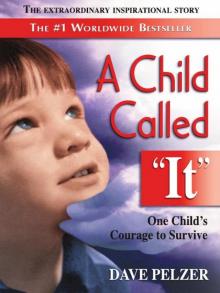 A Child Called It: One Child's Courage to Survive
A Child Called It: One Child's Courage to Survive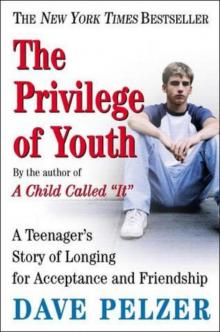 The Privilege of Youth: A Teenager's Story
The Privilege of Youth: A Teenager's Story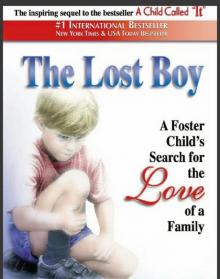 The Lost Boy: A Foster Child's Search for the Love of a Family
The Lost Boy: A Foster Child's Search for the Love of a Family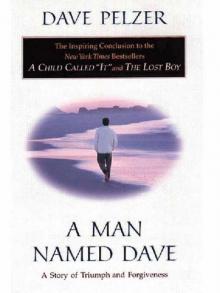 A Man Named Dave
A Man Named Dave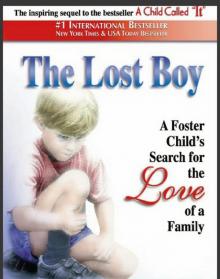 The Lost Boy
The Lost Boy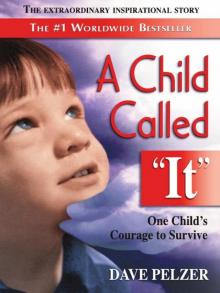 A Child Called It
A Child Called It